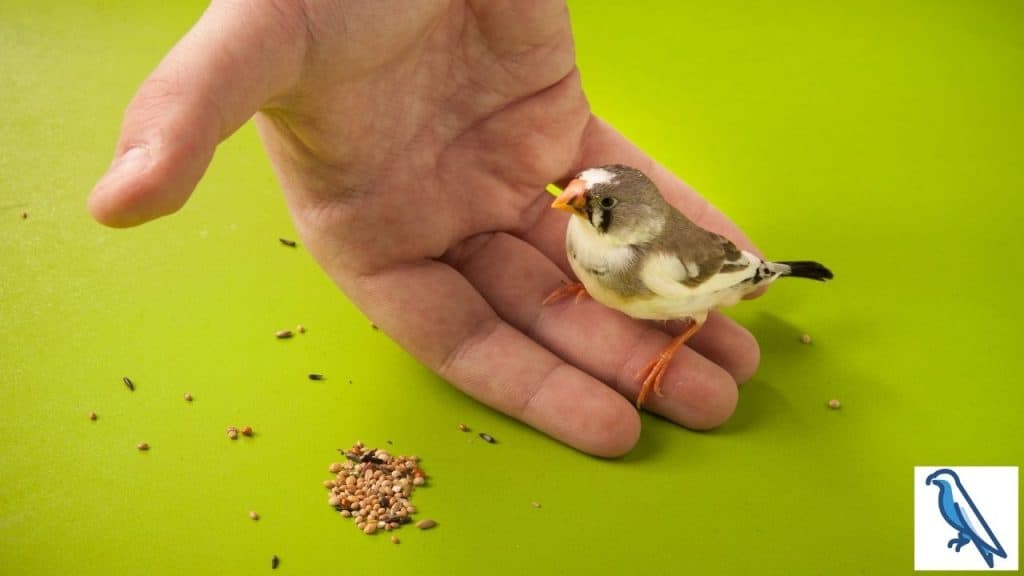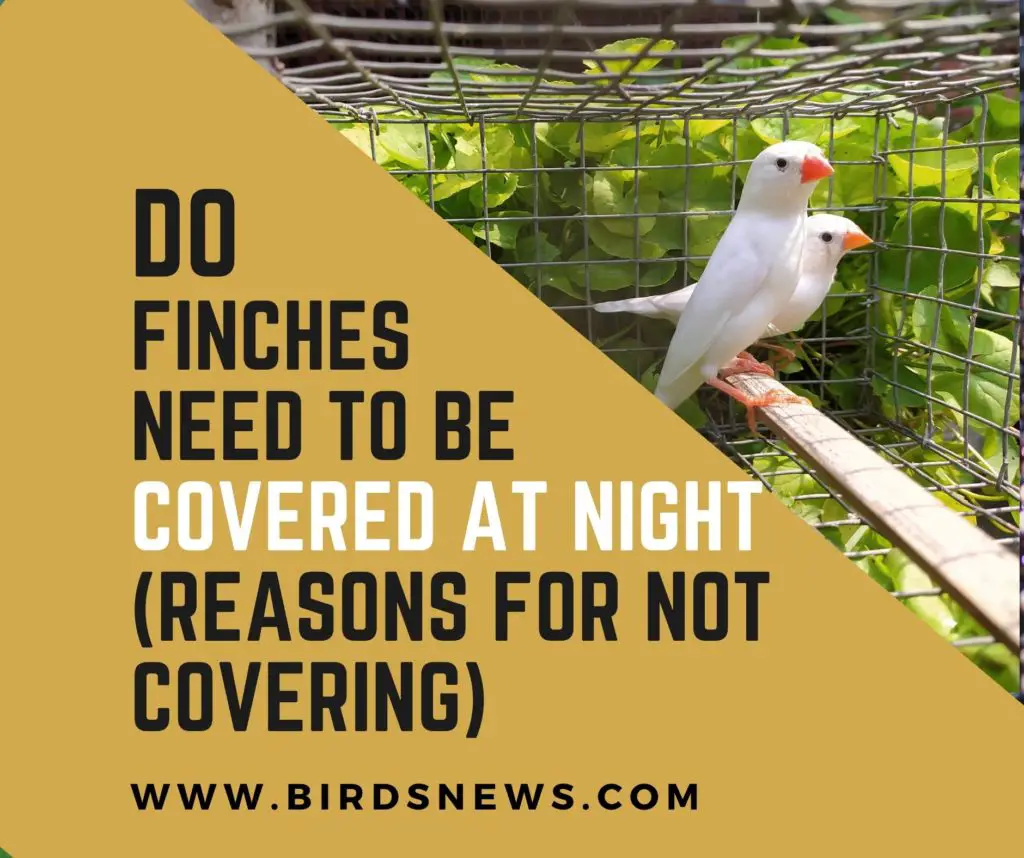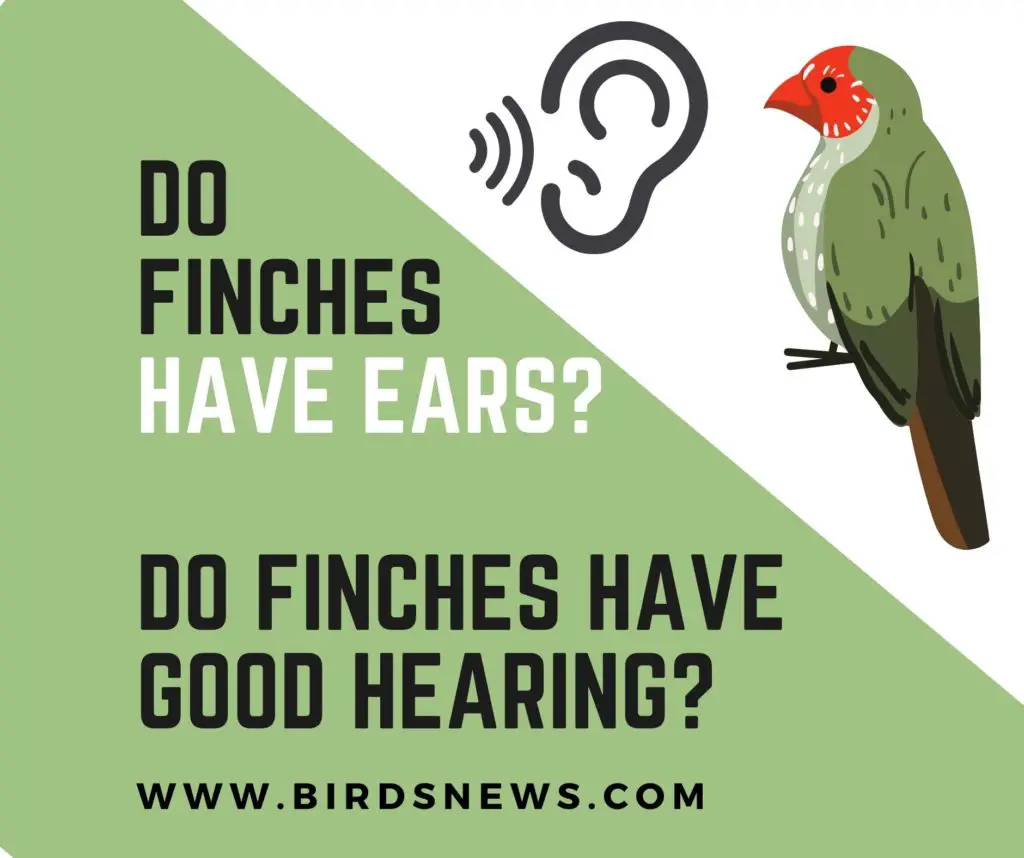Finches are charming and friendly. They tend to develop a strong bond with their mates. Even as parents, they nurture their young ones. In captivity, also finches love to be in pairs. Finches are lovely cage mates and share things with their inmates.
However, there may be certain situations that can trigger aggressive behavior in your pet bird. In such a situation, do finches attack pet owners or other human visitors in your house?
No. Finches do not attack humans. They are sociable and love the company of cage mates. In abundance, they are lively, chirpy, and exhibit playful behavior.
However, in distress, they may show signs of aggression like plucking feathers and biting other mates but are unlikely to hurt humans.
Now that you know, finches may not attack humans even under stressful situations. Let’s also see whether undue stress stimulates vicious behavior towards their mates. In other words, are finches aggressive towards inmates?

Are Finches Aggressive?
Finches are generally pleasant. They are chattery and love to sing and make a loud noise, especially the male finch. In the wild, finches show signs of aggression to protect their nest from intruders or if they feel threatened by someone’s presence.
They are territorial and may shoo away uninvited guests in their territory. They may also become aggressive in the absence of enough food.
In captivity, you may take care of their specific needs like proper food supply. However, there are other things you must explore to ensure your pet finches are happy.
It is essential to understand what makes your pet finches comfortable and relaxed. Any undue stress can lead to aggressive behavior like biting their cage mates, which may disrupt your bird cage’s harmony.
Let us understand the possible reasons that may put your pet finches under duress and possibly trigger aggressive behavior like attacking their mates.
Related Further Reading:
- Do Zebra Finches Smell Bad? + Are Zebra Finches Messy Birds?
- Do Finches Like Music? + Are Finches Happy When They Sing?
- Do Finches Have Ears? (Do Finches Have Good Hearing)
Reasons Why Finches Attack?
Finches are easy-going, which makes them an ideal pick for bird lovers, even beginners. Finches are beautiful and come in an array of stunning patterns.
They are charming and chatty and exhibit delightful behavior. However, there are times when finches have shown signs of aggression.
Finches do not attack humans but may attack cage mates under stressful conditions by biting or plucking the feathers of their mates.
Let us understand situations that may put your pet finches in distress and lead to aggressive behavior.
- Overcrowding: Thefinch cage’s size is an essential factor determining the pet bird’s behavior. In a large aviary, finches can have more personal space and avoid confrontations with other cage mates by moving to the cage’s far corner. In a small cage, there will be frequent intermingling among the occupants leading to increased violent situations.
- Incompatibility: Many pet owners try to keep different types of birds in the same cage. It may improve your enclosure’s overall look with other varieties of birds; however, it may upset your cage’s harmony, as your pet finches may feel stressed when they are forced to share the cage with other inmates. It may make your finches or even other birds aggressive as they may not be compatible living together.
- Rivalry: Finches and Canaries are often part of an aviary. Many bird owners love them and bring home as pet birds. During the breeding season, these birds may get into a singing rivalry. As a pet owner, you may enjoy the constant face-off, but it can become stressful to your pet bird and may result in violent spells.
- Hot or Cold Temperature: Asa pet owner, you must know the temperature where you keep the cage. Outdoors, ensure there is enough shade around the cage. An open beak and sagging or drooping wings is a clear indication that your bird is over-heated. Indoors, you may keep the finch cage in a cold and secure room. If exposed to extreme cool temperatures may result in fluffed feather, which indicates that your bird is not only stressed but unwell.
- Mating Urge: During the breeding season, the male finch may want to mate, but the female may not be receptive. It may frustrate the male finch and lead to unwarranted aggression towards the female finch.
- Lack of Sleep: Ifyourfinch cage is kept in a room or at a place that has continuous exposure to light, it will not allow your finches to rest appropriately. Your pet may feel tired and restless due to a lack of sleep.
- Territorial: During the breeding season, male finch may become over-protective and defend the nest while the female finch is incubating the eggs. It will not allow any other mates to come closer to the nest. In cases of a large aviary, there may be enough space. However, a small cage can be problematic, and the male finch will become aggressive to keep other cage mates away.
Now you have learned things that may cause aggressive behavior in your pet finch. Let’s also look at ways to handle your pet bird’s aggression.
How To Handle A Finch’s Aggression?
As you know, finches are chirpy, colorful, and chatty birds who enjoy the company of their cage mates. However, certain factors, which are already covered above, may upset your pet bird.
Let us now explore and find how you can handle your pet finch’s aggressive behavior.
- Get the right number: You must get the correct number of birds for your house cage. Finches prefer to fly around rather than climbing or walking. You must ensure there is enough space in your cage for your pet finches to move around. Your pet should be able to find a corner in the enclosure where it can rest and feel safe.
- Check for compatibility: You must breed only those bird types that are compatible with each other. Even after that, keep observing their behavior for any rift or aggression between different bird types. If you find something wrong, you better keep them in a separate cage or create a partition, so they do not intermingle.
- Docile birds: If you are interested in keeping more than one type of bird, you may add docile birds that do not create competition. It will ensure there is no stress, and they all live in harmony.
- Suitable Living Conditions: Anotherfactor that adds directly to your pet bird’s survival is the right living conditions. Hot or cold living conditions can create a stressful environment, and constant exposure to such extreme conditions can negatively impact your pet bird’s health.
- Mating Desire: If the male finch shows the desire to mate and starts chasing and hurting the female finch for being unreceptive. It is better to move the birds to different cages for a few days.
- Improve Sleeping Conditions: If yourfinch cage is kept in a room or at a place that has continuous exposure to light, you must ensure you cover it with a cloth. You have to create conditions that mimic the nest cavity so that your pet finches will get adequate sleep at night.
- Enough Personal Space: Large aviary provides enough space for the nest. Other finches will move away from the female finch incubating the eggs. When there is enough space for all the birds in the cage, they will be happy and continue to live incoherence.
By taking care of all the above suggestions, you can create an excellent living condition for all the pet birds in your aviary. It will improve the bird cage’s look and create an environment that supports coexistence.
Interesting Further Reading:
- Do Finches Feed Their Babies? (How Long Can Babies Live Without Food?)
- Are Finches Affectionate? + Do They Like To Be Handled By Humans?
Conclusion
Finches are social birds and show intense bonds among inmates. However, at times they may become stressed and display violent behavior towards cage mates.
As a pet owner, you have to ensure there is enough personal space for every bird in the enclosure and create conditions suitable for healthy living.

Hi, There and Welcome to BirdsNews.com, is here to help you learn and care about pet birds. and this blog is a journal of everything I’ve learned.







